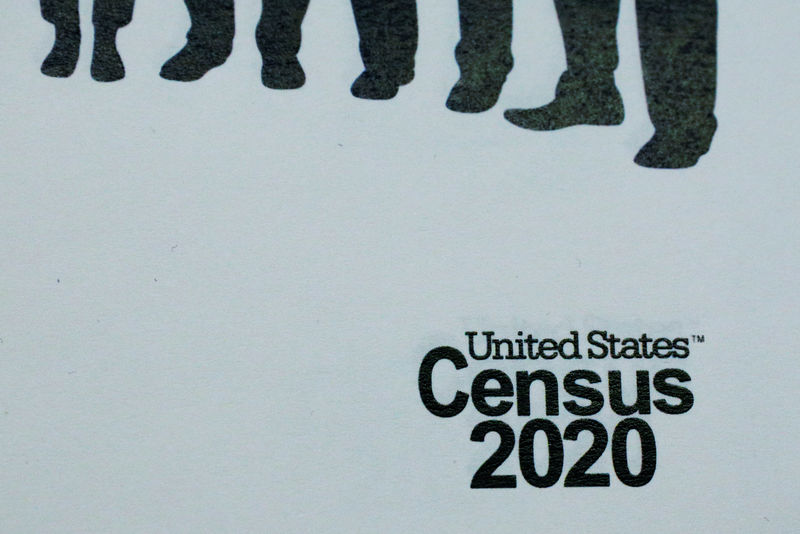(Reuters) - A U.S. judge in Maryland on Wednesday rejected a Department of Justice request to replace its legal team in cases concerning the 2020 census, the second time in two days a federal judge has stymied the government's attempt to bring in new lawyers.
U.S. District Court Judge George Hazel said the government needed at least one withdrawing lawyer to remain on the case to help the new lawyers. Barring that, Hazel said the government would need to provide detailed reasoning why that was untenable.
Earlier on Wednesday, the Justice Department urged Hazel to approve the new team and said Attorney General William Barr had broad authority to assign lawyers, and that a staffing change "will not affect the posture of the case or cause any disruption."
The filing came a day after U.S. District Judge Jesse Furman in Manhattan rejected a Justice Department request to substitute new lawyers in the census case he oversees.
The Justice Department attempted to change the team of lawyers after the U.S. Supreme Court ruled on June 27 against the first attempt by Republican President Donald Trump's administration to add the citizenship question, calling the rationale "contrived."
The once-per-decade population count determines the number of congressional representatives for each state and dictates how the federal government allocates more than $800 billion in funding for services such as schools and law enforcement.
Trump has said he was considering issuing an executive order to put the citizenship question on census forms, which opponents fear will lead to an undercount in Democratic-leaning areas with high immigrant populations.
Plaintiffs in the census litigation have argued that bringing in a new legal team will delay the legal proceedings and put government opponents at a disadvantage.
The government has long argued the litigation has to move quickly, in part to meet deadlines for printing census forms.
Trump said last week his administration was considering whether the Census Bureau could print an additional form or an addendum, an idea census experts said was likely to be very expensive and extremely difficult.

Legal experts said if the goal was to undercount Democratic-leaning regions, one way to accomplish that would be to keep alive a losing legal fight because it might feed suspicions about the census and deter immigrants from responding.